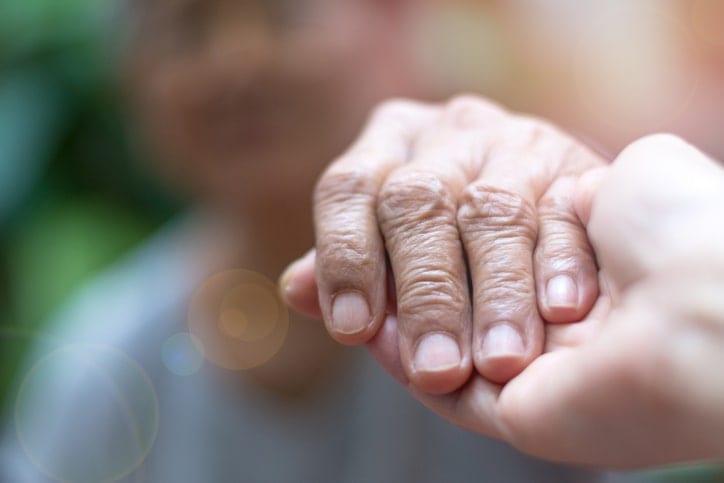 Awareness days, weeks, and months are beneficial to our society. They provide an opportunity to share information, show support, and express appreciation. Awareness campaigns help start valuable conversations while reminding people they are not alone.
Awareness days, weeks, and months are beneficial to our society. They provide an opportunity to share information, show support, and express appreciation. Awareness campaigns help start valuable conversations while reminding people they are not alone.
President Bill Clinton was the first commander in chief to proclaim November as National Family Caregivers Month. American Presidents since that time have continued to honor family caregivers by issuing yearly presidential proclamations. Every November since 1997, we collectively recognize the support and sacrifices of spouses, adult children, friends, neighbors, and parents providing physical and emotional support for loved ones living with illness, disability, mental health disorders, and chemical dependency.
If you support a family member currently in alcohol or drug use recovery or are trying to convince a family member they need treatment, you may feel nervous, overwhelmed, or unprepared. That’s why it’s important to know you are not alone. National Family Caregivers Month may be the ideal platform to remind caregivers there are numerous ways to support recovery while emphasizing the need for caregiver support.
Recognizing the Fact That You Are Not Alone
When one member of your family is living with chemical dependency, your entire family is affected in some manner. Family conflict caused by substance use can get more complicated as time passes. As a result, many caregivers feel powerless or ineffective.
Even when you can differentiate between your feelings for the person affected and your feelings about the behavioral changes caused by their disease, you may sometimes find it difficult to maintain your perspective. If you are providing care or emotional support for a chemically dependent teen, spouse, or young adult, you might recognize the following feelings or thought processes:
- Feeling as if your family is being torn apart by the disease
- Feeling conflicted about how to react to behaviors resulting from substance use
- Living with self-blame, shame, or guilt
- Emotional trauma from word and actions of those who live with chemical dependency
- Grieving the loss of the “person that was” before substances took over
- Worry about neglecting the needs of other family members by focusing on the person in recovery
- Feelings of disappointment or betrayal when treatment fails to produce the results you were hoping for
It’s important to know that your feelings are natural and to be expected. Remember, there is no such thing as a perfect parent or a perfect family. If you are finding it increasingly difficult to sort through the many intrusive thoughts and emotions commonly felt when supporting a teen or adult in the many phases of use and recovery, you may want to consider joining a support group in your area. Family members (and friends) often need therapy, counseling, or peer support to cope with the many, often conflicting, emotions caused by substance use disorders.
How a Caregiver Can Support Substance Recovery
Support for a family member living with a substance use disorder does not end with convincing them to seek treatment or complete a treatment program. Recovery is an ongoing, active process, a lifelong struggle to avoid triggers and maintain sobriety. Your support can make a significant difference. If your loved one is recovering from chemical dependency, consider the value of the following suggestions:
- Be Available and Prepared to Listen
People in recovery often feel isolated or alone. One of the easiest ways to show your support is to listen. If someone you care for is having a particularly troubling day, encourage them to vent their frustrations, fears, or concerns. Keep in mind that it is important to listen without judgment. It can also be helpful to ask open-ended questions to ensure you understand the full extent of the message conveyed. Active listening builds trusting relationships and effective communication.
- Celebrate Victories
Recovery can be tough, and abstinence takes a considerable amount of work. You can help support recovery by celebrating milestones along the way. Celebrating the initial weeks of sobriety and overcoming triggers can help build confidence. Celebrating long-term accomplishments recognizes achievement. Although there are many ways to commemorate noteworthy accomplishments, most often a simple, straightforward acknowledgment of progress may be all that is needed to keep the positive momentum going.
- Encourage Hobbies and Activities
A person in recovery may have spent a considerable amount of time engaged in the activities they are now trying to avoid. Caregivers can help by creating a substance-free environment and encourage those they support to fill their time with a new hobby or develop new skills. You may even find an activity you enjoy doing together, maybe volunteering, trying new recipes, or even learning a new language.
- Be Alert to Signs of Relapse
The risk of relapse is highest during the first year of sobriety. Caregivers can support recovery by remaining alert to signs of a potential relapse. Just a few of the many signs of an impending relapse can include feeling overly confident in sobriety, no longer attending recovery support meetings, making new friends who are not in recovery, and using other socially acceptable substances as a substitute for those they are trying to avoid.
Recognizing the Importance of Self Care
Many family caregivers spend a great deal of time putting the needs of others before their own. Not only is it important to recognize a caregiver for their support and sacrifice, we should also be emphasizing the importance of family caregivers having the support they need to allow time for recharging their batteries and practicing self-care. Over time, the stress of supporting a loved one in recovery can lead to caregiver burnout.
The symptoms of caregiver burnout can include increased irritability, fatigue, weight gain, or feelings of helplessness or isolation. In recognizing the contributions of family caregivers, it’s important to remind them not to forget the value of self-care. If caregivers don’t take time out of their day to care for themselves, they will eventually have little energy to care for or support others. To help prevent caregiver burnout, consider the following suggestions:
- Maintain a healthy diet to support your immune system
- Remember the importance of exercise and sleep
- Consider journaling as an outlet for your thoughts and emotions
- Learn to say no to other requests of your time if you are feeling stressed
- Consider the benefits of mindfulness meditation
- Stay in touch with family and friends
- Make time for activities you enjoy
- Join a support group and stay connected
Family caregivers deserve our support and appreciation. People living with chemical dependency deserve a scientifically designed recovery model so they can move forward and reclaim their life. That’s why so many family caregivers place their trust in Pinelands Recovery Center of Medford.
Located in a serene, relaxing environment amid the lush pine woods in Medford, New Jersey, we apply programs designed to keep clients accountable, while offering unwavering support and understanding. Pinelands Recovery Center is backed by a partnership with researchers at Rutger’s University and recognized for our reputation for success. We believe all chemically dependent people can recover if they have the right motivation and the tools they need to support their efforts.
For more information about Pinelands Recovery Center of Medford, or to ask about our residential, outpatient, transitional living, or family programs, fill out the Contact Form found at the bottom of our homepage for a confidential consultation.
